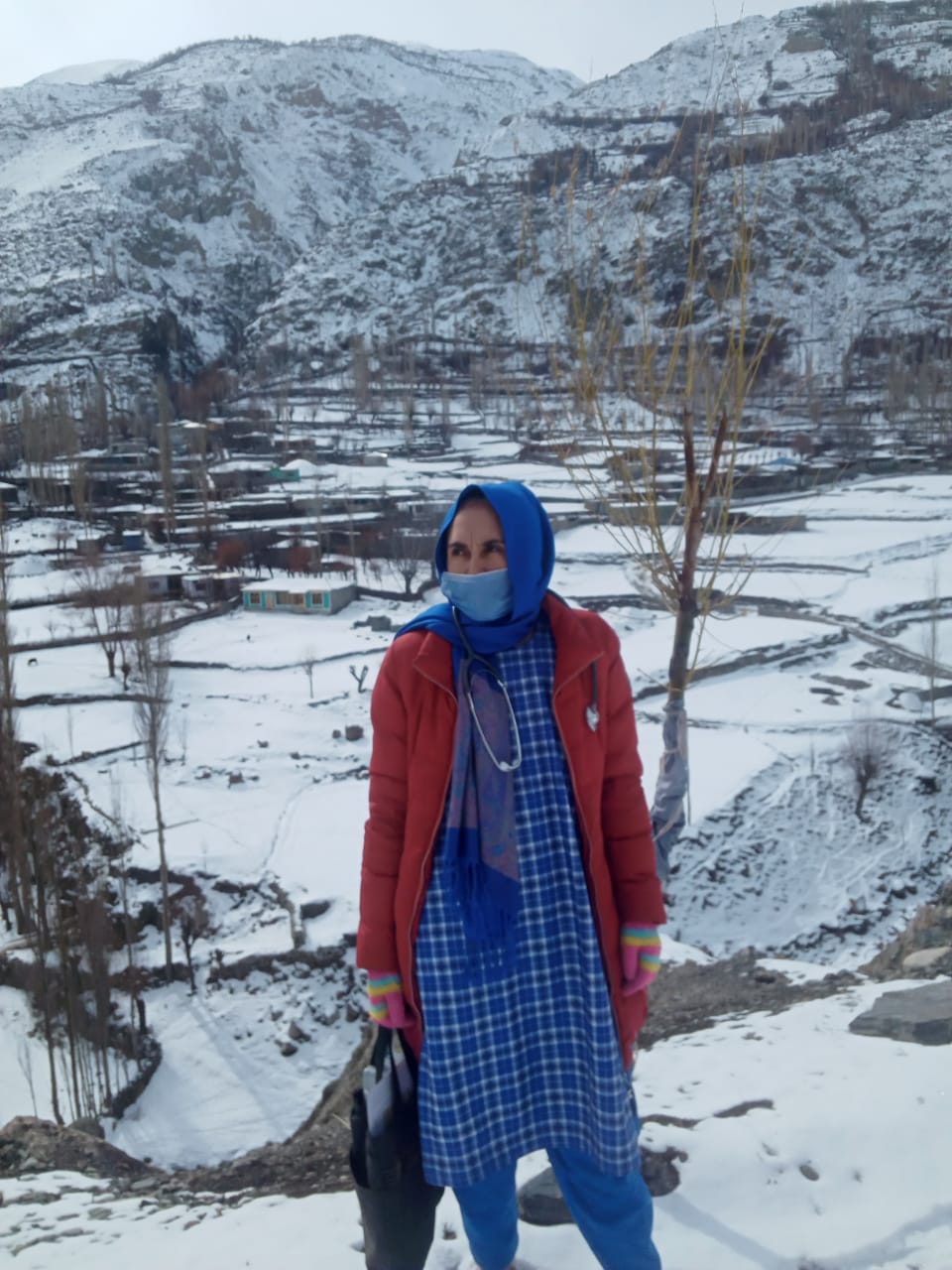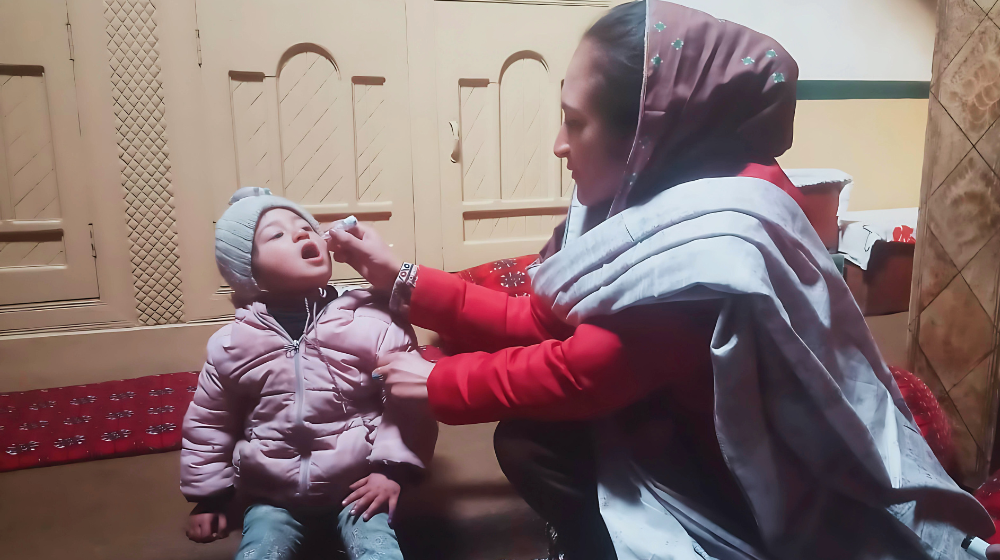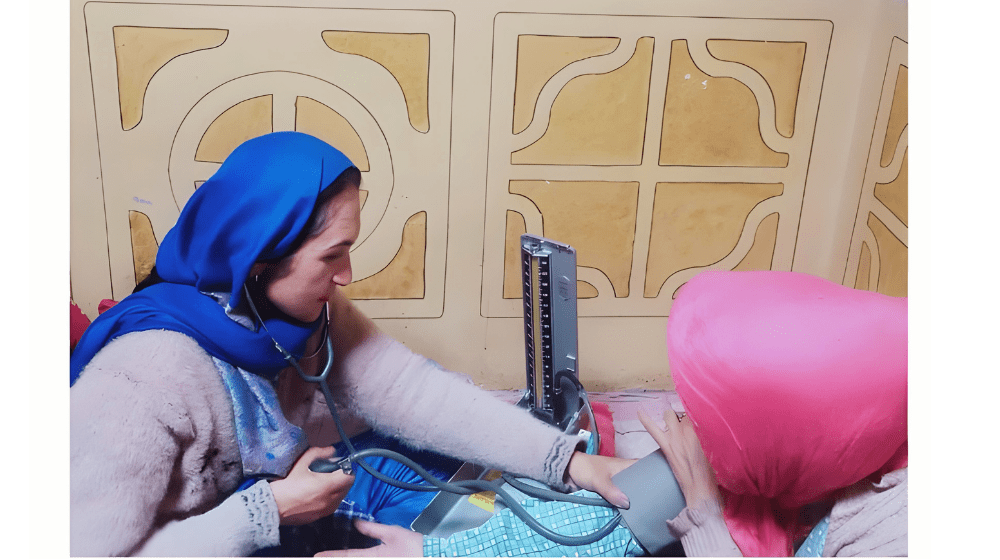Pakistan is one of the top ten countries facing the brunt of the current climate crisis. The terrain stretching from the heights of the Hindukush to the depth of the Sindh delta can be inhospitable in the best of circumstances, but as the weather conditions deviate from the norm with rising heat levels and melting glaciers contribute to increased flood warnings and landslides. The most vulnerable in these conditions are the pregnant women and children. The first hope and last bastion of maternal health in these conditions are the midwives. They are the ones who can show up with both promptly and with agility in their response to the evolving crisis situations.
Thus, UNFPA works, with its partners, to scale up quality midwifery education, strengthen midwifery training curricula, and institutions.
Under Sihatmand Khandaan Project, funded by Government of Canada, the UNFPA through its partner Agha Khan Health Services has conducted trainings of Community Midwives (CMWs) in the norther region of Gilgit Baltistan. UNFPA is also working to provide supplies and help in building health infrastructure.
How are Midwives the best solution in the current climate crisis?
Midwives have emerged as the best solution in the face of the current climate crisis, particularly in remote and geographically challenging regions like Chitral. As specialized services remain distant and inaccessible to communities living in far flung villages, Midwives serve as localized frontline healthcare providers, delivering essential maternal and newborn care directly to people's doorsteps. Their impact extend ends that of specialists located at distant secondary care hospitals, as they are physically present and able to respond swiftly to emergencies, whether it's a complicated labor at high altitudes during winter or a rainy summer night in a remote village.
In the face of economic shocks caused by climate-related disasters, communities prioritize essential needs, making midwives' services invaluable for women who have limited access to healthcare facilities outside their villages. In regions like Chitral, which face extreme weather events and geographical challenges, midwives are often the most accessible and reliable healthcare resource for communities. Their ability to travel on foot and navigate difficult terrain allows them to reach remote areas where other healthcare services may not be available due to infrastructure limitations or weather-related disruptions. Midwives are trained to provide essential maternal and newborn care under challenging conditions, ensuring that pregnant women receive timely and life-saving interventions, especially during emergencies such as floods, landslides, or snowstorms. Their deep understanding of local customs and cultures also helps build trust and acceptance within conservative communities, making them effective advocates for modern healthcare practices.
Fida Bibi, Community Midwife from Chitral
Midwives are the only solution in the current climate catastrophe, one such hero is Fida Bibi, who has been working as a community midwife in Thoi village.
This is a small village nestled in the Yasin Valley, a high-altitude mountain valley in the foothills of Hindu Kush mountain range of Gilgit-Baltistan, Pakistan. The valley is situated approximately 148 kilometers (92 miles) away from the city of Gilgit, which serves as the capital of Gilgit-Baltistan.

Climatically, it is considered a remote and harsh area where its cold for seven months a year with snow in winter and frequent landslides. The area is often landlocked for several months at a stretch. People are unable to access health facilities due to roadblock in winter and summer seasons caused by snow and landslides.
Fida Bibi has been a midwife in this area for over five years now, providing health care services in areas where health facilities are not accessible (the nearest health facility is more than an hour away by car, if roads are open). Even when women are unable to reach her birthing station, she tries her utmost to make home visits so she can provide timely health service to the people. This is perilous crossing harsh terrain and braving the elements. It is a job that requires more than perseverance and skill, but a passion to serve the community and the dedication to be the support system that the community desperately needs. Midwives like Fida Bibi, not only ensure safe deliveries, provide healthcare to mother and child but facilitate a bond within the family and community by being mindful of local practices and customs.

Fida Bibi received training through Agha Khan Health Service and UNFPA under Sihatmand Khandaan Project, funded by the Government of Canada. It was a two-week training where she was initially given trainings then was attached with experienced Lady Health Visitors (LHV) at primary health care facility where she had hands on training on antenatal care (ANC), postnatal care (PNC), deliveries, and family planning related services.
After the training, Fida Bibi is in constant contact with the LHV, as a mentor for discussing complicated cases for her guidance and supportive supervision as well as for the purpose of making referrals.
Fida shared that in case of complicated deliveries, women and their families are sometimes not willing to travel to referred health care facilities. In such situations, she counsels them and even travels with them to the nearest health care facility to ensure that they have reached the facility safely. She conducts follow-up visits after the deliveries and share the woman’s health progress with the respective LHV.
“Presence of midwives in our communities, especially in remote areas, is very important because we protect and save the lives of mothers and newborn babies through safe deliveries. In remote areas, there are no gynecologists, doctors or nurses hence we have to step in to provide health care services to women. This is why, even in harsh weather, I am always motivated to provide service as I find pride and joy in serving my communities” Fida Bibi

Midwives are trained to provide essential maternal and newborn care under challenging conditions, ensuring that pregnant women receive timely and life-saving interventions, especially during emergencies such as floods, landslides, or snowstorms. Their deep understanding of local customs and cultures also helps build trust and acceptance within conservative communities, making them effective advocates for modern healthcare practices.


